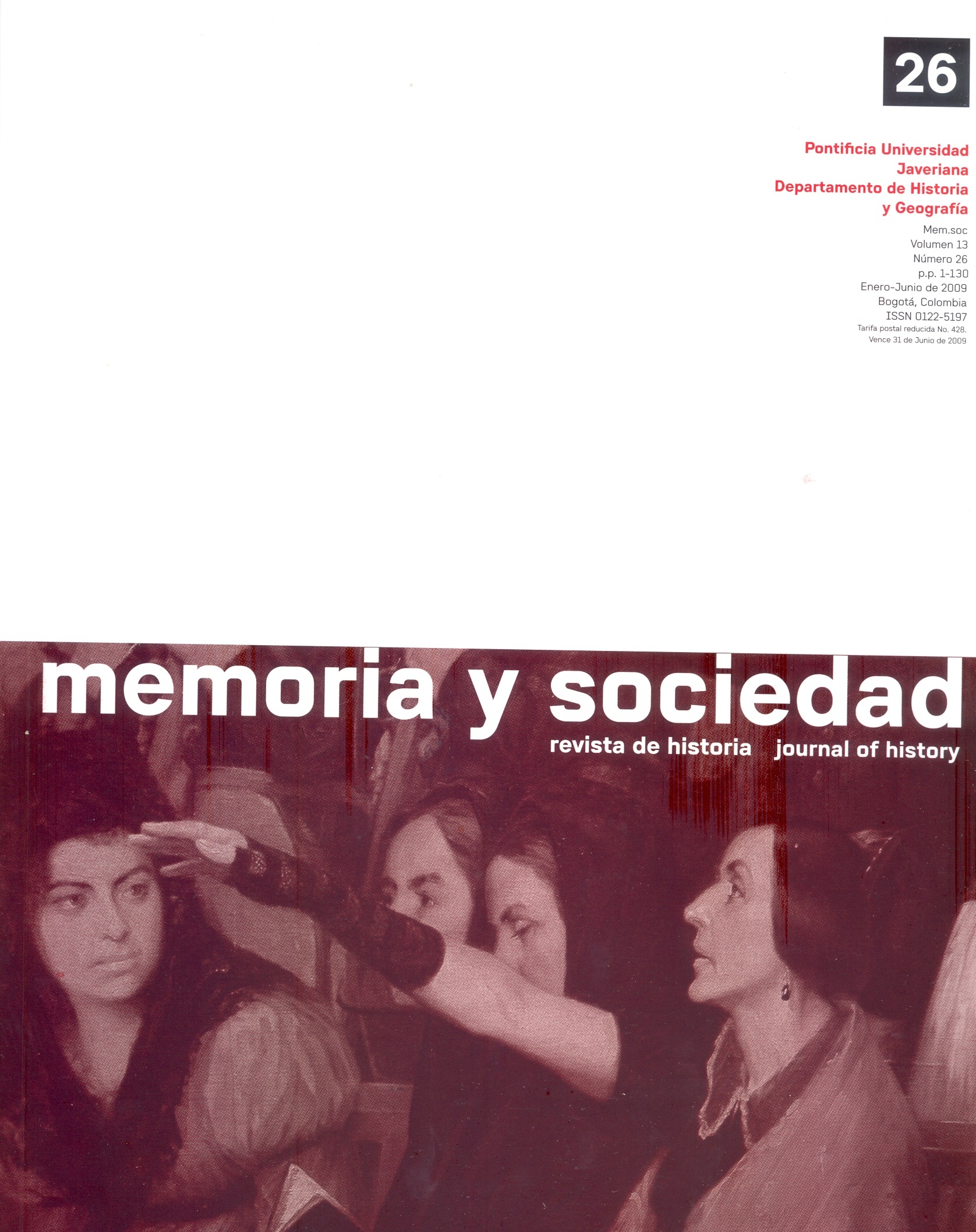Abstract
This article presents a state of the art in a field of scholarship still to be institutionalized in Colombian academia. In the first place, the author establishes the definition of the terms “history” and “popular music” and explains the conflictive relation between both of them in the Latin American context, in particular in Colombia. The singular evolution of music historiography in the country explains the diversity of methodologies used in the collection of data, as well as in the formats and writing styles. The article aims to provide order to a diverse and mostly empirical writing tradition that has rarely been considered a coherent field of study. This work comes out from a project of bibliographic compilation titled “Sistema de información bibliográfica sobre la investigación en Colombia” (System of Bibliographic Information about Music Scholarship in Colombia), carried out by the Grupo de Investigaciones Musicales from the Music Department, Universidad Javeriana.The journal Memoria y Sociedad is registered under a Creative Commons Attribution 4.0 International Public License. Thus, this work may be reproduced, distributed, and publicly shared in digital format, as long as the names of the authors and Pontificia Universidad Javeriana are acknowledged. Others are allowed to quote, adapt, transform, auto-archive, republish, and create based on this material, for any purpose (even commercial ones), provided the authorship is duly acknowledged, a link to the original work is provided, and it is specified if changes have been made. Pontificia Universidad Javeriana does not hold the rights of published works and the authors are solely responsible for the contents of their works; they keep the moral, intellectual, privacy, and publicity rights.
Approving the intervention of the work (review, copy-editing, translation, layout) and the following outreach, are granted through an use license and not through an assignment of rights. This means the journal and Pontificia Universidad Javeriana cannot be held responsible for any ethical malpractice by the authors. As a consequence of the protection granted by the use license, the journal is not required to publish recantations or modify information already published, unless the errata stems from the editorial management process. Publishing contents in this journal does not generate royalties for contributors.

